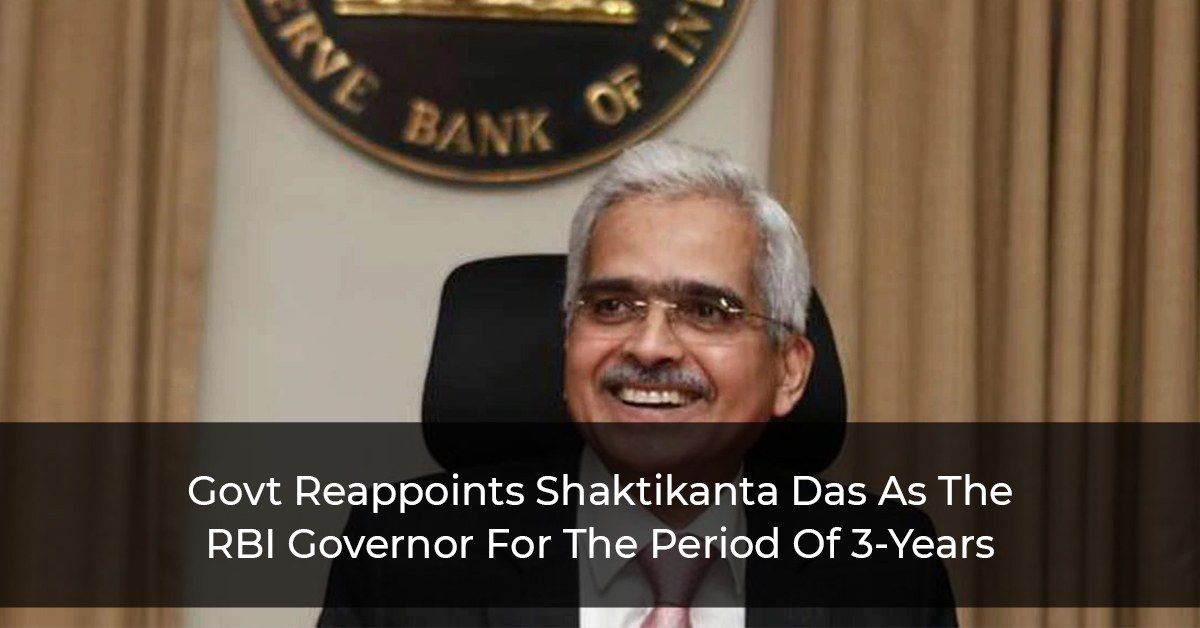Highlights:
- Das was appointed to the RBI’s top role for the first time on December 11, 2018, for a three-year term.
- Das formerly served as the Secretary of Economic Affairs.
- During his stint in the Finance Ministry, Shaktikanta Das was actively engaged in the development of up to eight Union Budgets.
The government has granted the Governor of the Reserve Bank of India (RBI) a three-year extension till December 2024.
As per the official announcement, “the Appointments Committee of the Cabinet has accepted the reappointment of Shaktikanta Das as RBI Governor for a period of three years beyond December 10, 2021, or until further orders, whichever is earlier.”
The Cabinet’s nominations committee accepted the decision late Thursday.
Das taken over as the Reserve Bank of India’s 25th Governor on December 12, 2018. He was also the Secretary of Economic Affairs at the Finance Ministry. He was also an acting member of the 15th Finance Commission and India’s G20 Sherpa.
Throughout his career, he held key roles in finance, taxation, industry, and infrastructure. He has served as Alternate Governor at the World Bank in India, Asian Infrastructure Investment Bank (AIIB), the New Development Bank (NDB), the Asian Development Bank (ADB).
Also Read: Farmers’ Protest Site at Delhi’s Tikri Border Freed From Police Roadblocks
Das formerly worked for the Finance Ministry and was directly involved in the preparation of up to eight Union Budgets. He holds a postgraduate degree from Delhi University’s St Stephens College.
“The reappointment of Governor Shaktikanta Das for a three-year term suggests continuity of monetary policy and provides greater stability to government-RBI relations,” according to a report from Barclays. If he completes his six-year tenure as governor, Das will be the RBI’s longest-serving governor in over seven decades.
“The three-year reappointment is slightly longer than the traditional two extension that has previously been the norm. Under Governor Das’ leadership, the central bank has done the heavy lifting to stabilise the economy throughout the COVID crisis, with fiscal policy supporting. We also see the governor’s reappointment as a statement of confidence in the RBI’s stance on policy,” Barclays added.
Das succeeded Urjit Patel, who left amid increasing disagreements with the government on variety of issues, including the RBI’s autonomy.


